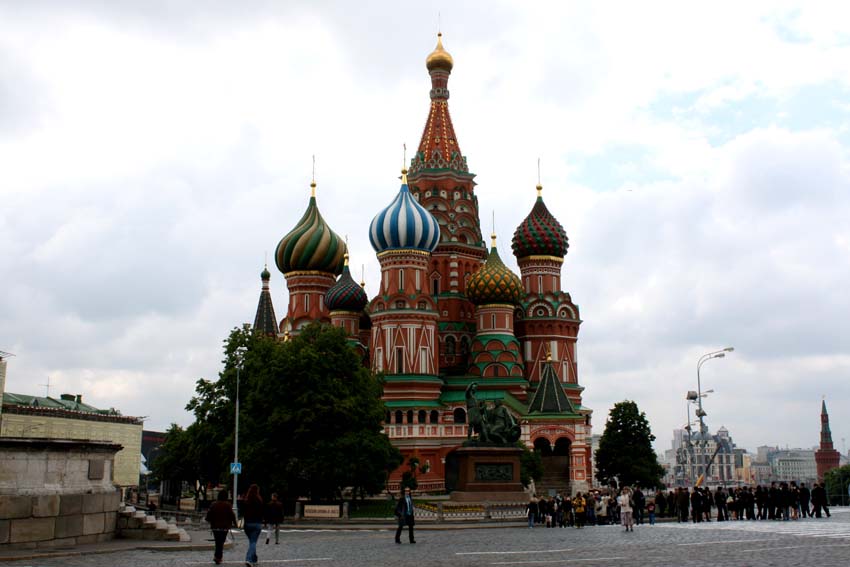But just when all appears to be lost,
但是一切都失去的時候
the peasants and the nobility hear the Russia Orthodox Church's call, and they drive the hated invaders out.
農民和貴族聽了俄羅斯東正教的號召,他們將討厭的侵略者驅逐出去
This sense of unity involved in this process is best described by the term "Holy Russia".
在此過程中的團結最能用“神圣俄羅斯”一詞來形容
Unfortunately the feeling did not last for long.
不幸的是這種感覺并沒有持續太久
Segment 17b: Gathering the Lands.
17節B:征收土地
The face of Eastern Europe began to change in the 1300s A.D.
在公元14世紀,東歐開始改變

In the first place, the Mongol Empire and its spinoff, the Golden Hoard, were starting to disintegrate.
首先,蒙古帝國以及它的附屬國金帳汗國開始分裂
The Golden Hoard had watched happily as the major Rus's principalities were shattered by the practice of appanage.
金帳汗國很樂意看到俄羅斯主要的公國因為實施了封地而四分五裂
Now, in the 14th century, they depended on the Russians themselves to collect tribute and to help them fight off invasions from the West.
14世紀,他們依靠俄羅斯人獲得貢品,幫助他們抵御來自西方的侵略
We've already mentioned the invasions of the Swedish and the Teutonic Knights, both stopped by Prince Alexander Nevsky in the 1240's.
我們已經提到了瑞典的侵略以及條頓騎兵團,他們在13世紀40年代被亞歷山大大公擊退
More dangerous yet was the pagan principality of Lithuania which had recently converted back from Christianity.
更危險的是異教徒的立陶宛公國最近又轉回信天主教,不信基督教
Under Gedima Nasagirdas, 1345 to 1377, Lithuania built a huge empire reaching from the Baltic Sea south to the Black Sea.
1345年到1377年格迪米納斯統治之下,立陶宛建造了一個從波羅的海向南到黑海的巨大的帝國











